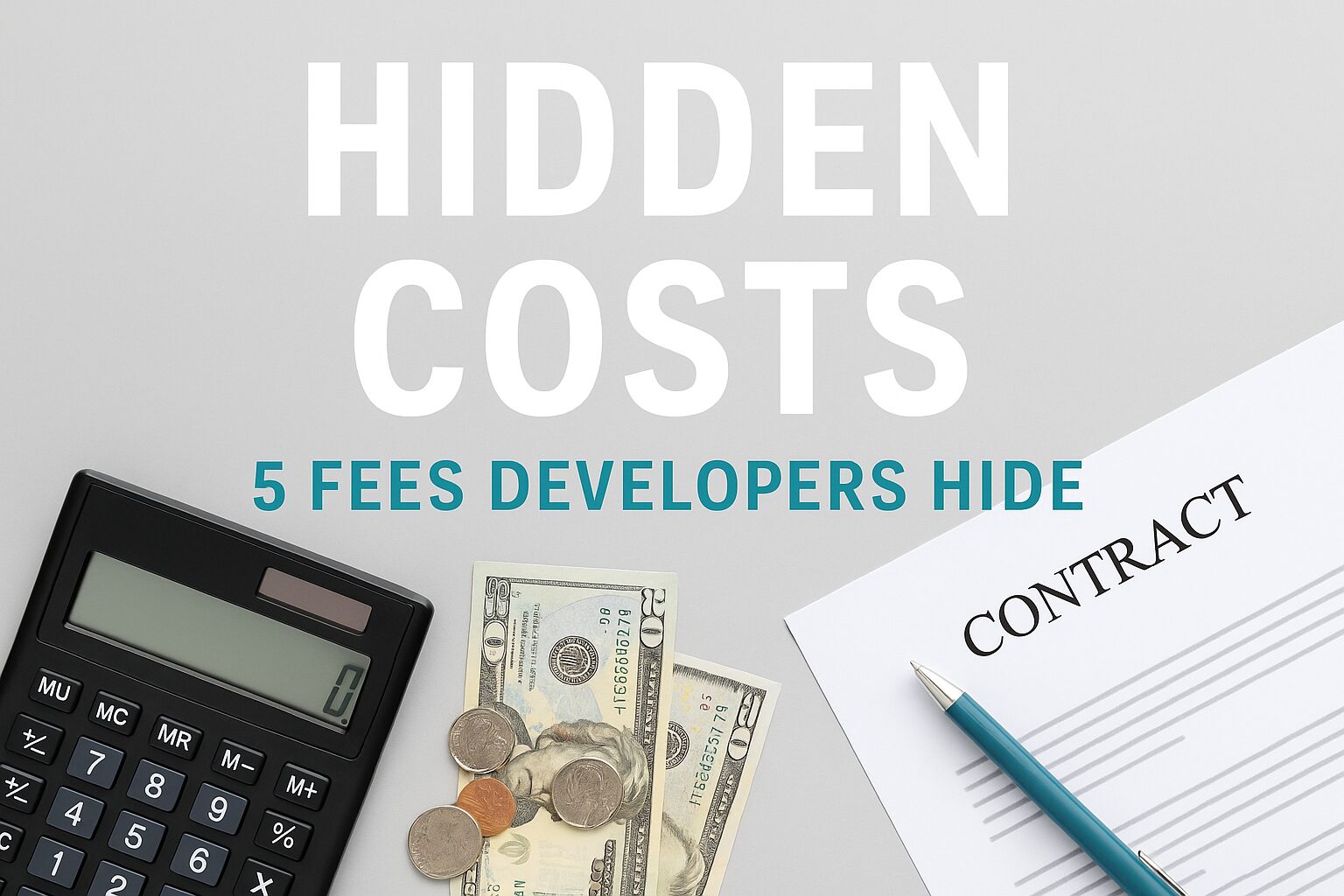
25 Sep Timeshare Hidden Costs: 5 Fees Developers Don’t Want You to See
Quick take: Timeshare hidden costs hit many owners: yearly fees climb, booking gets harder, and extra charges appear. So if ownership keeps getting more expensive, review the contract and compare real travel prices.
Why this matters
Sales teams sell a dream of flexible, affordable vacations. Yet the fine print tells a different story. Over time, hidden timeshare fees strain budgets and reduce the value of ownership.
Below are five fees we often find during a free contract review, plus one simple step for each.
1) Maintenance fees: a common hidden timeshare fee
“Modest increases” add up. A 7% annual raise can double your bill in a decade. This is one of the most persistent timeshare hidden costs.
- Impact: You pay more each year for the same—or less—access.
- Action: Calculate cost per trip and compare it with public rates for the same unit and dates.
2) Special assessments and add-ons
Resorts levy assessments for repairs or upgrades. You may also see exchange, change, or housekeeping fees. These add-ons rarely appear in the sales pitch.
- Impact: One notice can add hundreds or thousands to a single year.
- Action: Locate the assessment clause and check how often your HOA has used it.
3) Booking barriers and forced cash stays
Owners fail to book prime weeks while the same units show up on retail travel sites. Inventory often moves under “hotel policy” rules. As a result, you pay fees and then pay again for alternate stays.
- Impact: The real value of ownership drops as out-of-pocket costs rise.
- Action: Keep a log of requests, denials, and waitlists; save screenshots and emails.
4) Finance charges: another hidden timeshare fee
High interest and resets inflate total cost. Add credit-card deposits or penalties and the burden grows. Over time, interest can exceed the headline price.
- Impact: Lifetime cost may exceed the original purchase several times over.
- Action: Request a payoff quote and compare lifetime cost with traditional vacations.
5) Perpetuity clauses and family impact
Some contracts never end. A perpetuity clause can pass fee obligations to heirs. Many owners learn this only after signing.
- Impact: Family members inherit an ongoing bill—not a flexible vacation asset.
- Action: Flag this clause during your review and explore exit options early.

Why fees stay hidden
High-pressure sales highlight perks and skip the math. Key terms live deep in the paperwork. Owners feel blindsided when bills spike or access shrinks.
What to do now
- Gather records. Invoices, assessment letters, loan statements, and booking logs.
- Compare options. Price the same stay on public sites and note the gap.
- Document access issues. Keep screenshots showing denials or delays.
- Request a review. A specialist will explain red flags and next steps.
Internal resources
- TCR Podcast Library — misrepresentations, fees, and exits.
- Exit Scholar — clear guides for owners.
- Free Contract Review — no-cost, plain-language analysis.
External references
For impartial info, see the FTC’s timeshare advice, the FTC alert on exit scams, and the ARDA research library. The FBI also warns about resale scams.
Bottom line
In short, timeshare hidden costs can undermine value and strain finances. However, you have options. Gather records, compare prices, track booking issues, and get a clear contract review. If the numbers no longer make sense, act before the next increase.
Ready for clarity? We’ll flag hidden timeshare fees and map your next move.
